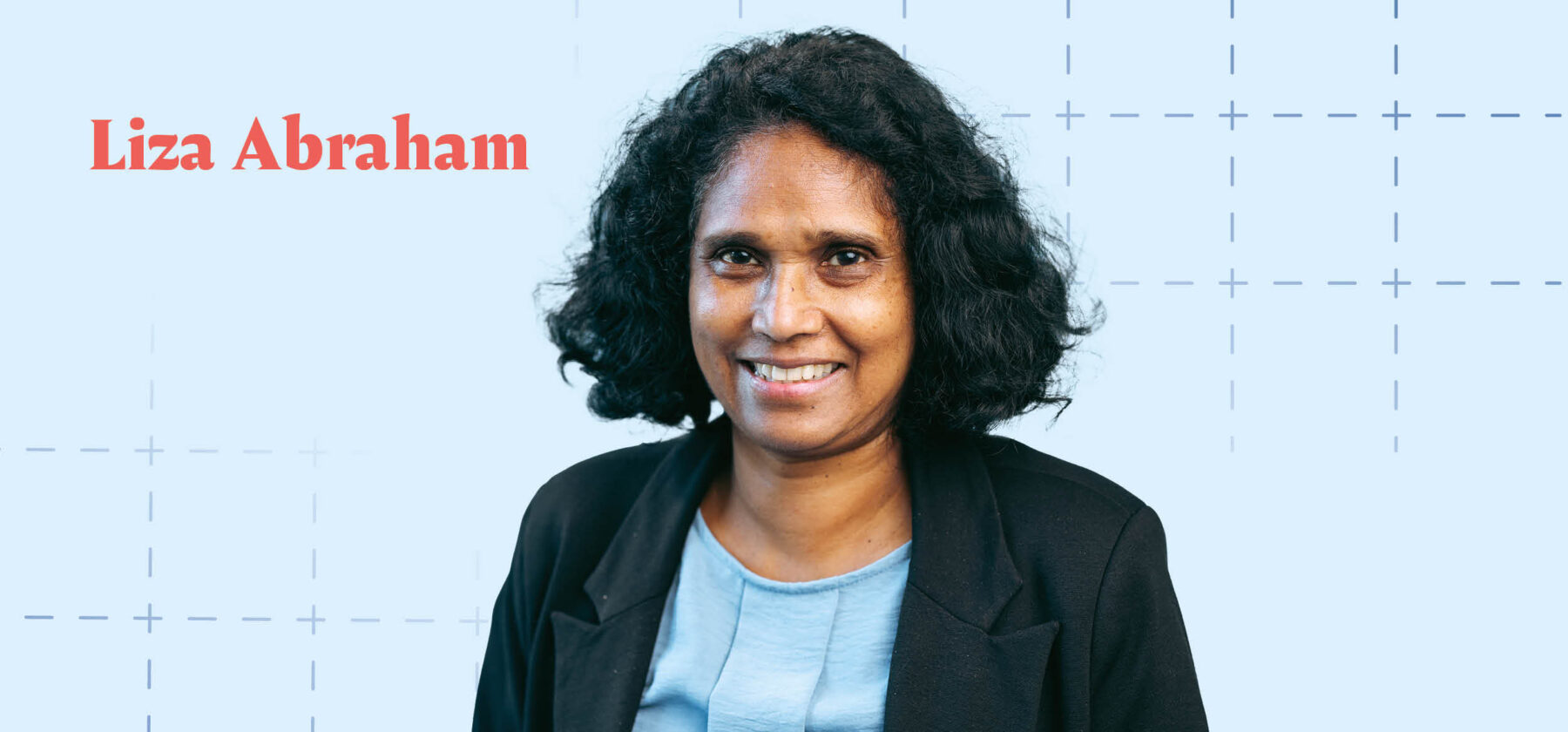Q&A with New Faculty: Liza Abraham
A version of this article originally appeared in the spring 2024 issue of STILLPOINT magazine.
A specialist in organic chemistry, Liza Abraham joins the Gordon College faculty after teaching at Ambrose University, where she established their research program in green chemistry. She has extensive industry experience as a medical chemist and research chemist. In addition to her scholarly pursuits, Liza volunteers with Samaritan’s Purse to support global clean water initiatives.
STILLPOINT: What is green chemistry? Why do you believe it is an important area of study?
Liza Abraham: Green chemistry focuses on designing and developing chemical processes and products that minimize or eliminate the use and generation of hazardous substances. It encourages chemists and researchers to think critically about the environmental and health impacts of their work and to develop more sustainable, eco-friendly solutions within their respective fields of study. It offers a holistic, systems-thinking approach that addresses environmental, economic and societal challenges. By emphasizing sustainability, resource efficiency and the reduction of environmental impacts, green chemistry plays a pivotal role in creating a more sustainable and circular economy while protecting the planet and improving human well-being.
SP: How does your work in green chemistry impact vulnerable populations around the world?
LA: By prioritizing sustainability, environmental protection and the reduction of harmful chemical exposures, green chemistry can contribute to improving the well-being and resilience of vulnerable communities, both locally and globally. It aligns with broader efforts to address environmental and social inequalities and promote a more equitable and sustainable world.
SP: Tell us about the work you do with Samaritan’s Purse.
LA: I’m a volunteer research collaborator with Samaritan’s Purse, an organization committed to enhancing water treatment and purification in regions lacking clean water access. My role involves addressing arsenic contamination in groundwater. Currently I’m getting ready for a pilot study that aims to replicate large-scale arsenic removal systems in a controlled laboratory setting. This research intends to offer valuable insights into tackling arsenic contamination, improving water treatment techniques and potentially developing strategies for eliminating other water contaminants. Undergraduate students will be actively involved in this work.
SP: Another area you’re passionate about is helping students make global connections. Tell us more about how you facilitate that.
LA: I’m proud to have been a two-time recipient of the Internationalization of Science at Home project, which is funded by the Ministry of Alberta, Canada. This funding underscores the growing importance of intercultural competence and global citizenship skills for students in our increasingly interconnected world. Through these projects, students enrolled in my Environmental Chemistry course had the opportunity to engage with students in Kerala, India, using Collaborative Online International Learning (COIL) as a platform for online interactions. I am currently planning to extend the international outreach experience to Gordon students through their engagement with United Nations Sustainable Development Goal 6 (UNSDG 6) – Clean Water and Sanitation. The project addresses several goals, including UNSDG education and awareness, cultural exchange and community engagement.
 The Bell
The Bell